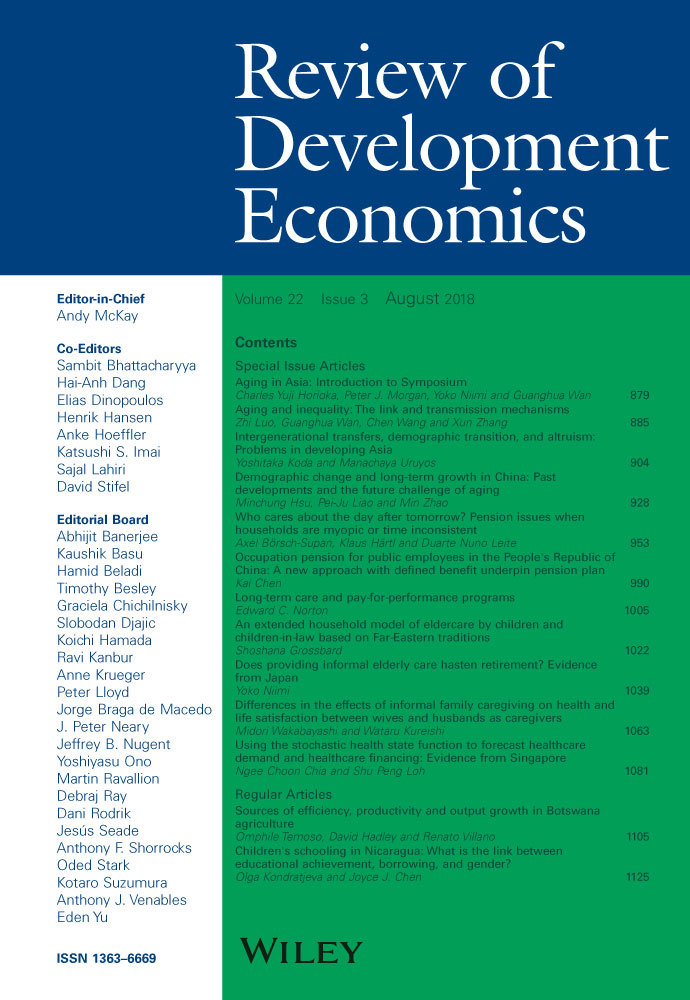Does providing informal elderly care hasten retirement? Evidence from Japan
Funding Information
This work was supported by JSPS (Japan Society for the Promotion of Science) KAKENHI Grant Number 15H01950, a project grant from the Asian Growth Research Institute, and a grant from the MEXT Joint Usage/Research Center at the Institute of Social and Economic Research, Osaka University.
Abstract
This paper examines the implications of providing care to elderly parents for adult children's retirement plans using micro data from a Japanese survey. We find no significant effect of caregiving on family caregivers’ planned retirement age if we do not take into account caregiving intensity but find a negative and significant effect on retirement plans for intensive caregivers, particularly among women. These findings suggest that relying on family members to provide elderly care can pose a serious challenge to the ongoing efforts of the government to promote the labor supply of women and the elderly as a way of addressing the shrinkage of the working-age population in Japan. The estimation results suggest that ensuring access to formal care services can help family members reconcile their paid work with caregiving requirements, thereby alleviating the adverse effect of caregiving on their retirement plans. The results also suggest that the financial burden of formal care services could require caregivers to postpone retirement in some cases.




